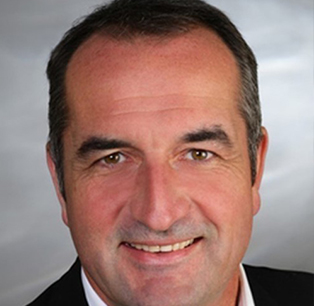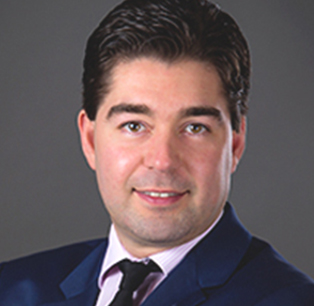
Digital Twins: An opportunity for the cleaning industry?
In many industries, we are currently experiencing a digitalization boom. Even in the German cleaning industry, which up to now has been characterized by conservative tendencies, new technologies are enjoying increasing popularity. One reason for this is undoubtedly the pressure on companies to move forward, triggered by the Corona Pandemic. After an initial shock and a partial "strategic unification", many of the industry representatives are working on concepts for the future. One new technological approach currently being discussed is the digital twin. This is a digital image, e.g. of a building or a cleaning machine, which helps to simulate workflows, represent the planning process or identify sources of error in advance. The digital twin can be created even if the real object does not yet exist. At the moment, however, in practice there is neither a generally valid definition of the technology nor a uniform understanding of the industry.
Nonetheless, it seems certain that the use of digital twins could open up some very interesting opportunities for the cleaning industry. These relate to not only the optimization of current cleaning processes, but also the planning of buildings in such a way that future cleaning practices are taken into account in the building infrastructure. If it is assumed that in the future cleaning activities will increasingly be carried out by robots, the creation of a corresponding building infrastructure is necessary. Even if the technologies are not yet available, the necessary infrastructure can already be planned for this, thus minimizing future costs for technology implementation. In addition, digital twins can help to better coordinate all trades necessary for building operation from the very beginning and to understand a building as a complete system in planning and management. Cleaning would no longer be an autonomous trade, being planned only after the building is completed, but rather a part of an interdependent overall system. This, however, requires closer cooperation and the development of mutual understanding between the cleaning and building industries.
Status Quo and Outlook
As is the case with many technological innovations, the majority of industry representatives are currently still reluctant to evaluate the technology and initiate test projects. As long as there are no best practice examples within the industry and no competitive disadvantages arise from not using the technology, this will probably only change at a slow rate. The increased use of digital twins in the cleaning industry is likely to be driven by technology development outside the industry and an achievable increase in efficiency. Current study results indicate initial tendencies that cleaning is increasingly being taken into account in the planning of buildings. Here, the industry should get involved in the discussions at an early stage, develop partnerships and make use of the given expertise.
Conclusion
Digital twin technology is still in its infancy in the cleaning industry. As in the field of IoT, there are still no relevant best practice examples or concrete business models that make the use of digital twins in the industry financially lucrative. However, a very attractive marketing effect can arise, especially for larger companies for whom the initial high investments are easier to make. In addition, the learning effects for these companies should not be underestimated, as they can provide a competitive advantage in the future. All things considered, it is yet to be determined whether a technology adaptation will happen from within the cleaning industry or if a cross-industry technology transfer will take place.
About the Authors

Even if not in terms of age, but due to his decades of experience in the industry, Stefan Lehmann is certainly one of the veterans of the cleaning industry. His professional experience include management and project tasks at international industry giants such as Henkel, Tana and Alliance.

Michael Di Figlia is one of the managing directors at DTO Consulting. After working for Bayer AG in the areas of in-house market research and strategic planning, as well as holding various positions at major management consultancies, the trained industrial clerk and MBA graduate founded DTO in 2008. DTO specializes in supporting its customers in various strategic projects through professional market analyses and strategic consulting. In addition to his management duties, Michael Di Figlia is head of the cleaning and hygiene industry division.
More Information
Would you like more information on this topic? If so, please get in touch with us. Our offices in Germany and Singapore are available for a free and non-binding consultation.